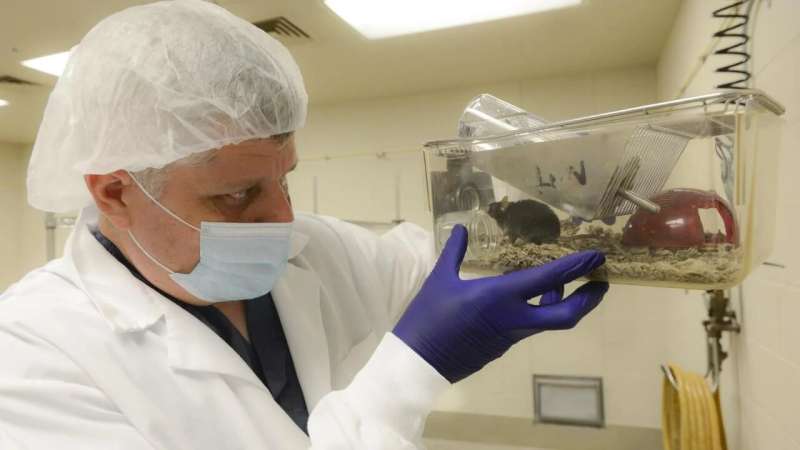This article has been reviewed according to Science X's editorial process and policies. Editors have highlighted the following attributes while ensuring the content's credibility:
fact-checked
trusted source
proofread
Keto diet found to slow early stages of Alzheimer's disease in mice

A new study from researchers at the University of California, Davis, shows that a ketogenic diet significantly delays the early stages of Alzheimer's-related memory loss in mice. This early memory loss is comparable to mild cognitive impairment in humans that precedes full-blown Alzheimer's disease. The study was published in Communications Biology.
The ketogenic diet is a low-carbohydrate, high-fat, and moderate-protein diet, which shifts the body's metabolism from using glucose as the main fuel source to burning fat and producing ketones for energy. UC Davis researchers previously found that mice lived 13% longer on ketogenic diets.
Slowing Alzheimer's
The new study, which follows up on that research, found that the molecule beta-hydroxybutyrate, or BHB, plays a pivotal role in preventing early memory decline. It increases almost sevenfold on the ketogenic diet.
"The data support the idea that the ketogenic diet in general, and BHB specifically, delays mild cognitive impairment and it may delay full-blown Alzheimer's disease," said co-corresponding author Gino Cortopassi, a biochemist and pharmacologist with the UC Davis School of Veterinary Medicine. "The data clearly don't support the idea that this is eliminating Alzheimer's disease entirely."
Scientists gave mice enough BHB to simulate the benefits of being on the keto diet for seven months.
"We observed amazing abilities of BHB to improve the function of synapses, small structures that connect all nerve cells in the brain. When nerve cells are better connected, the memory problems in mild cognitive impairment are improved," said co-corresponding author Izumi Maezawa, professor of pathology at the UC Davis School of Medicine.
Cortopassi noted that BHB is also available as a supplement for humans. He said a BHB supplement could likely support memory in mice, but that hasn't yet been shown.
Other cognitive improvements
Researchers found that the ketogenic diet mice exhibited significant increases in the biochemical pathways related to memory formation. The keto diet also seemed to benefit females more than males and resulted in higher levels of BHB in females.
"If these results translated to humans, that could be interesting since females, especially those bearing the ApoE4 gene variant, are at significantly higher risk for Alzheimer's," Cortopassi said.
The research team is optimistic about the potential impact on healthy aging and plans to delve further into the subject with future studies.
More information: Jacopo Di Lucente et al, Ketogenic diet and BHB rescue the fall of long-term potentiation in an Alzheimer's mouse model and stimulates synaptic plasticity pathway enzymes, Communications Biology (2024). DOI: 10.1038/s42003-024-05860-z





















